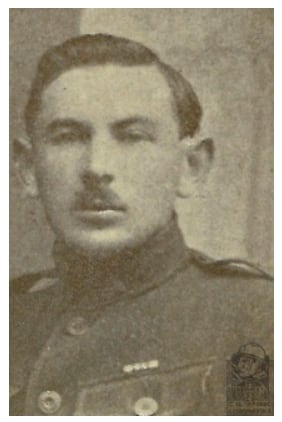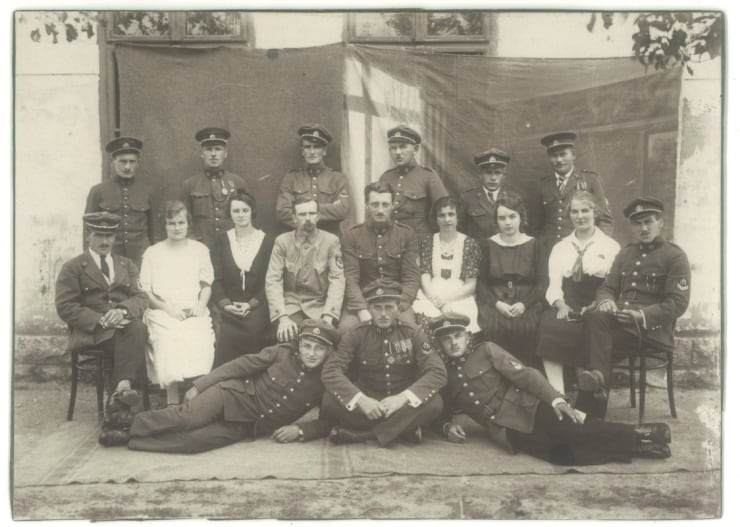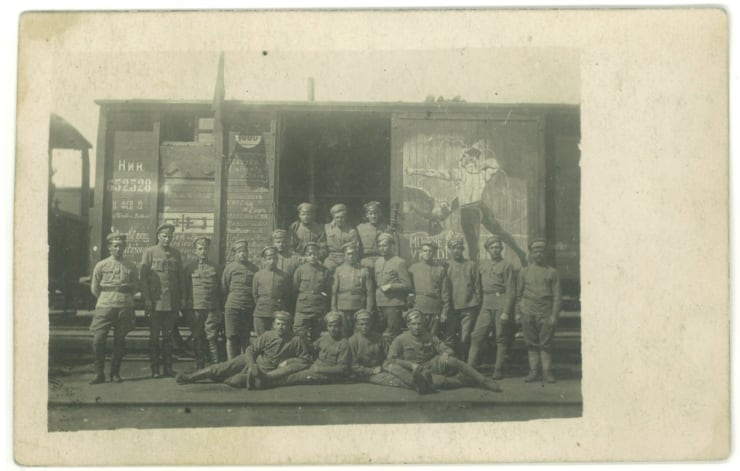Díky za článek, naši pradědové se určitě setkali, můj také sloužil u 6 Hanáckého střeleckého pluku. Podle vyprávění babičky se vrátil v roce 1921, údajně si celou dobu psal deník a nádherně do něj maloval, já ten deník bohužel nikdy neviděl, prý se dávno ztratil. Škoda. 
8.3.1918 The Battle of Bachmach
Categories: Personalities , First World War , Calendar
 The Battle of Bachmač has a special meaning for me personally. Our great-grandfather fought there and even earned a badge for bravery. The battle itself had little bearing on the outcome of World War I. It was basically just the defence of an important crossroads and bridge. The action was to stop or at least slow the advancing Imperial forces into the interior of the Ukraine.
The Battle of Bachmač has a special meaning for me personally. Our great-grandfather fought there and even earned a badge for bravery. The battle itself had little bearing on the outcome of World War I. It was basically just the defence of an important crossroads and bridge. The action was to stop or at least slow the advancing Imperial forces into the interior of the Ukraine.
Our boys at Bachmach fought alongside the Reds and at the request of the Directorate of the Ukrainian People's Republic. But thanks to the determined resistance of our troops, it was finally possible to negotiate a truce. During it, the legionary trains were allowed to pass freely through the Bachmach railway junction, and in effect this is the beginning of the famous Siberian anabasis.
The battle took place between 8 and 13 March 1918. The Legionnaires lost 4 officers, 45 men of the men's staff and had 210 wounded. Imperial losses were similar, estimated at about 300 men. The fighting involved parts of the 6th. Haná, 7th Tatra and 4th Regiment of Prokop Holý. They fought against the 91st and 224th Infantry Divisions.
Praděda Václav served in the 6th. Hanácké, they went through a really incredible journey and returned home only in 1920. But that's another story altogether.


 Photos from the collection of the Mlejnsky and Kolář families
Photos from the collection of the Mlejnsky and Kolář families
The article is included in categories:
- Archive of articles > Personalities
- Archive of articles > Wars > First World War
- Archive of articles > Calendar
Post
Napiš mi do obalky jméno a místo narození. Dohledám podrobnosti 
Taky přispěji kouskem do mlýna, můj praděda taky bojoval u Bachmače. Vím to z vyprávění babičky, která svému tatínkovi nechala odhalit pamětní desku v Chrtniči. Bojoval prý v střeleckým pluku a pak jízdním pluku. Získal vyznamenání Řád Sokola s meči a Československý válečný kříž 1914–1918. O vyznamenáních nikdo doma nevěděl a až po jeho smrti to babička objevila a zjištovala o co jde, což zjistila, že to byl vlastně hrdina. Mno a samozřejmě můj tatík tyto věci tedy vyznamenání a spoustu dobových věcí, jako např. halapartny, jezdeckou obuv z té doby, má doma uschovaný a střeží to jako oko v hlavě:-) tak asi tak
Gamer, klobouk dolů! Veliká spousta těchto dnes vzácnych pamětních artefaktů skončila bůhví kde, právě hlavně díky nezájmu rodiny. Vím o čem piši. Buď se věci nenávratně znicily nebo si je rodina rozebrala a je to roztříštěné a bez kontextu. Velká škoda. No ale ve velké větsině je vše nenavratně ztraceno 😢






